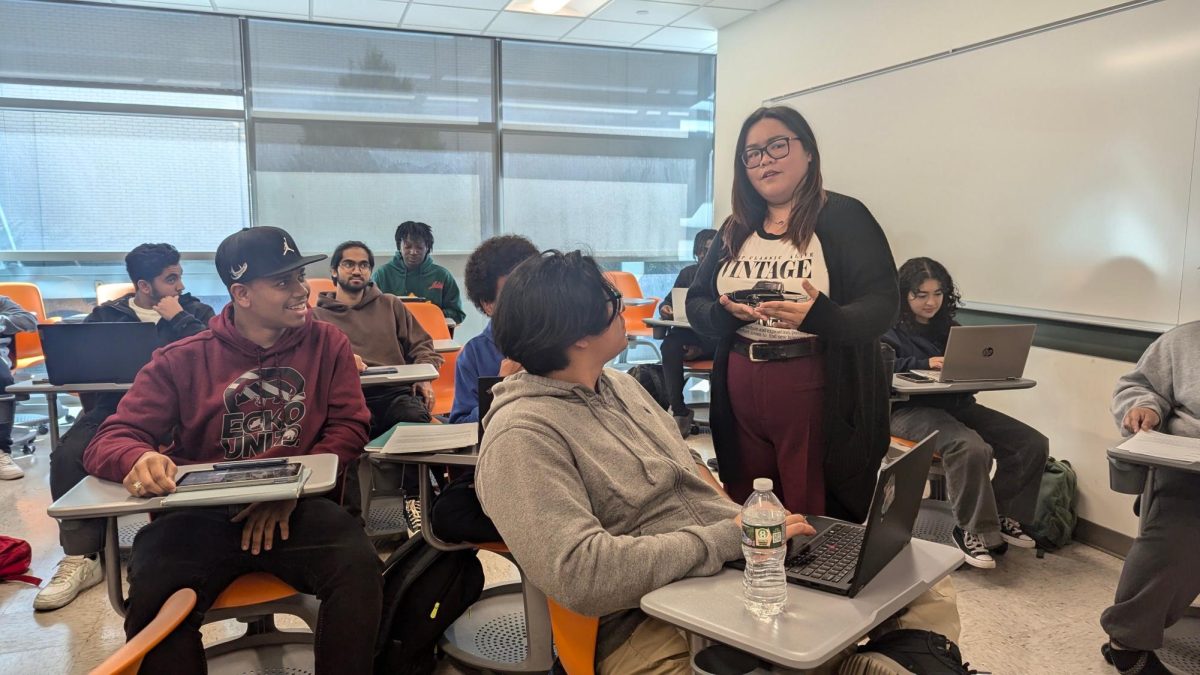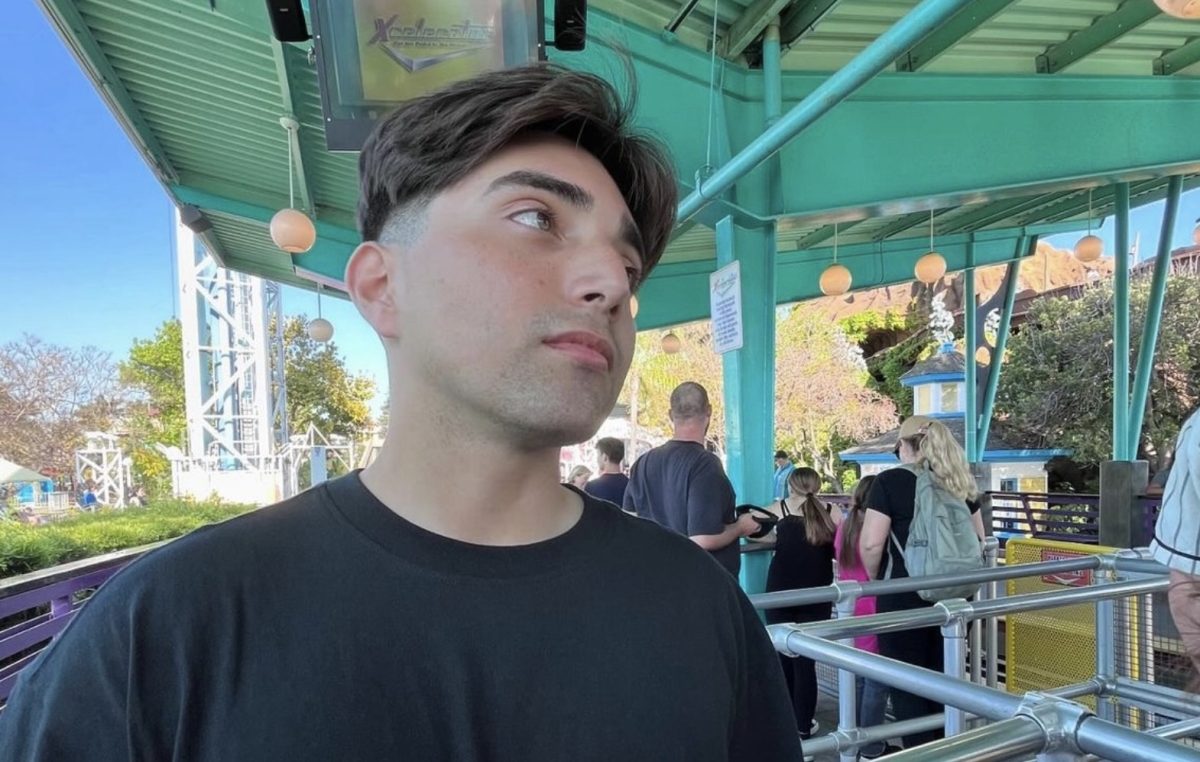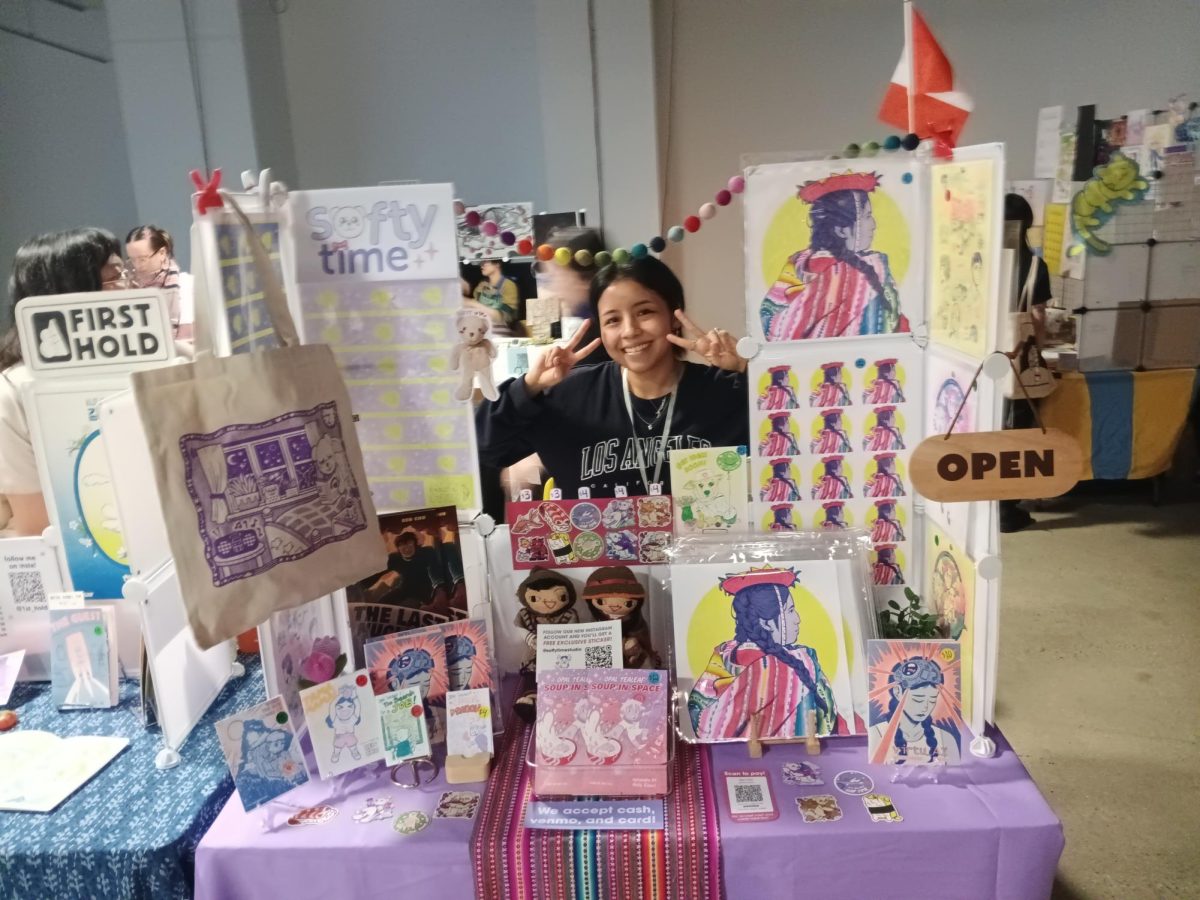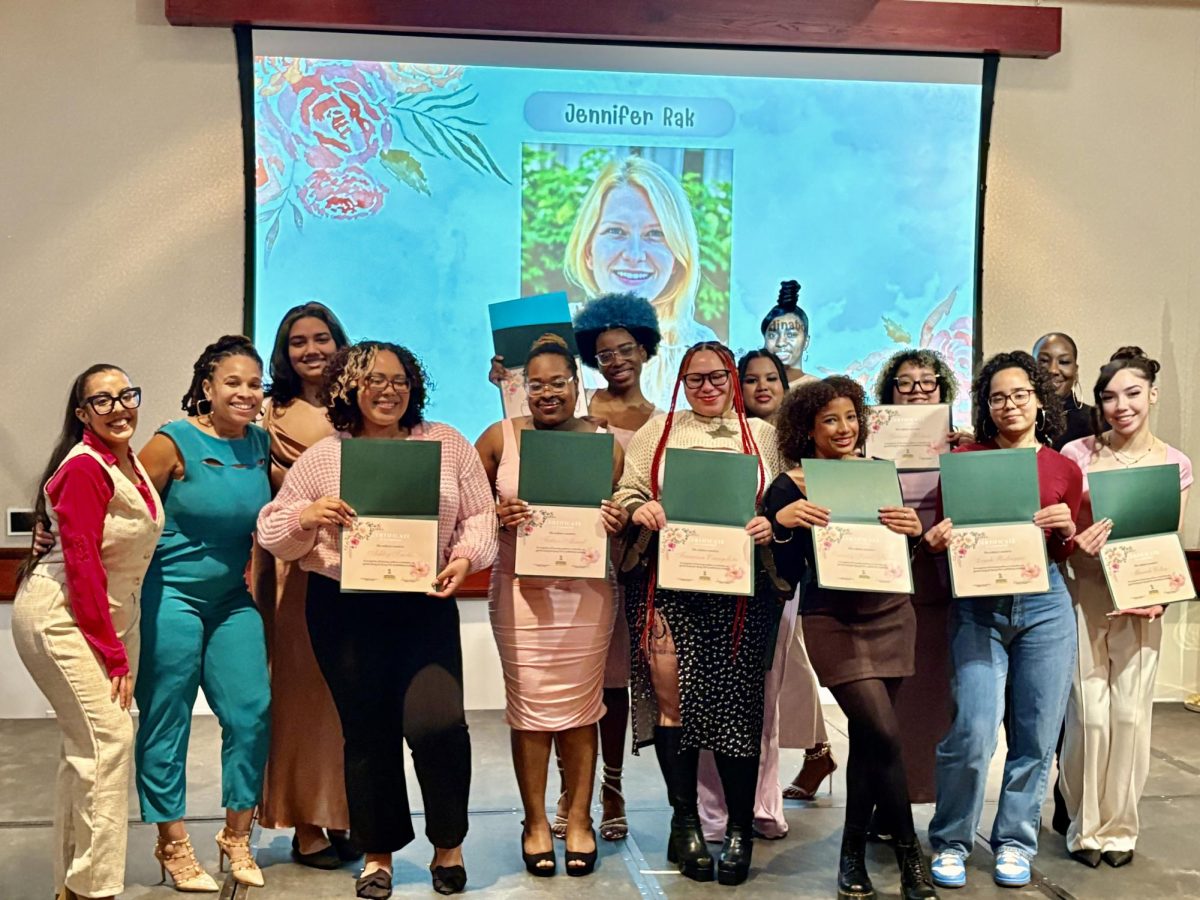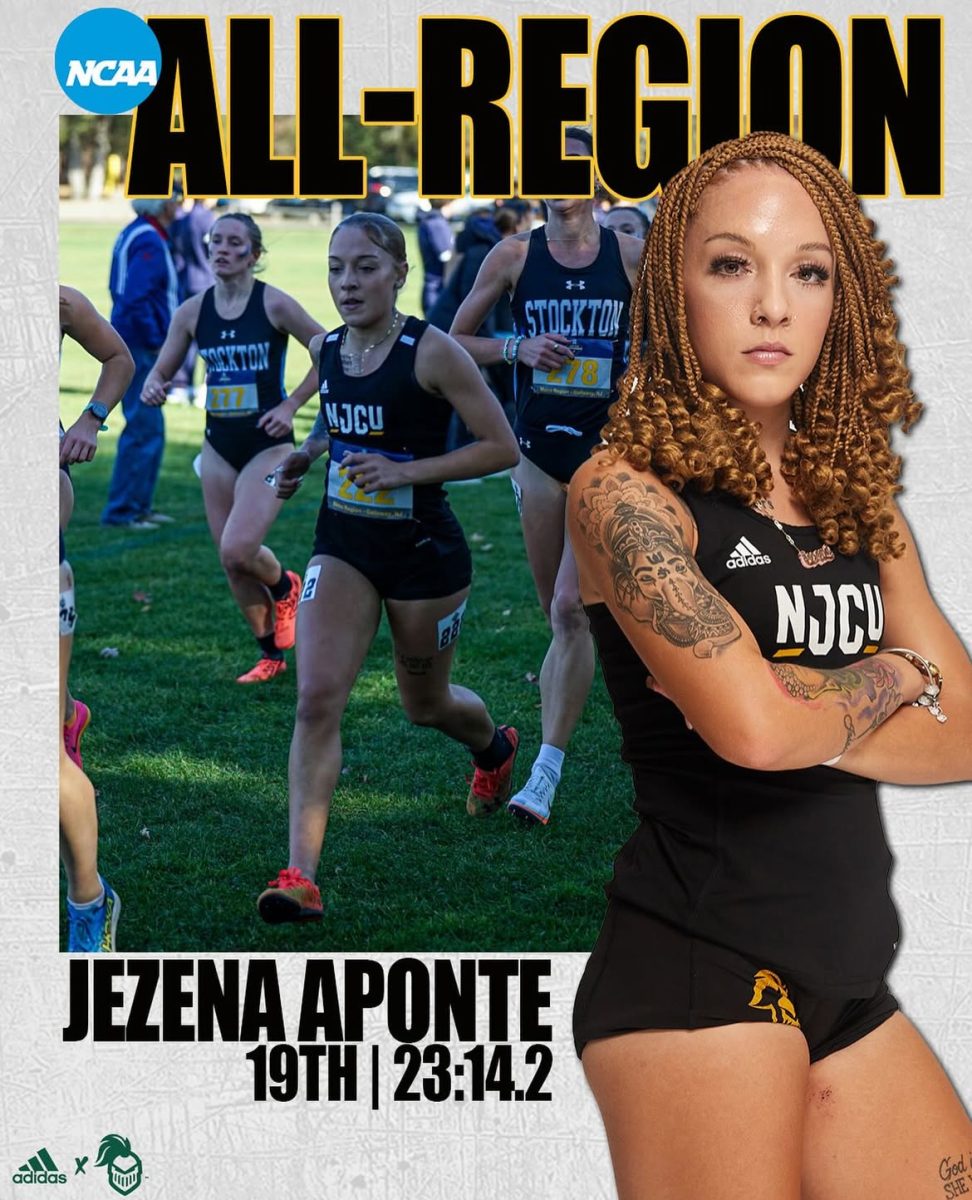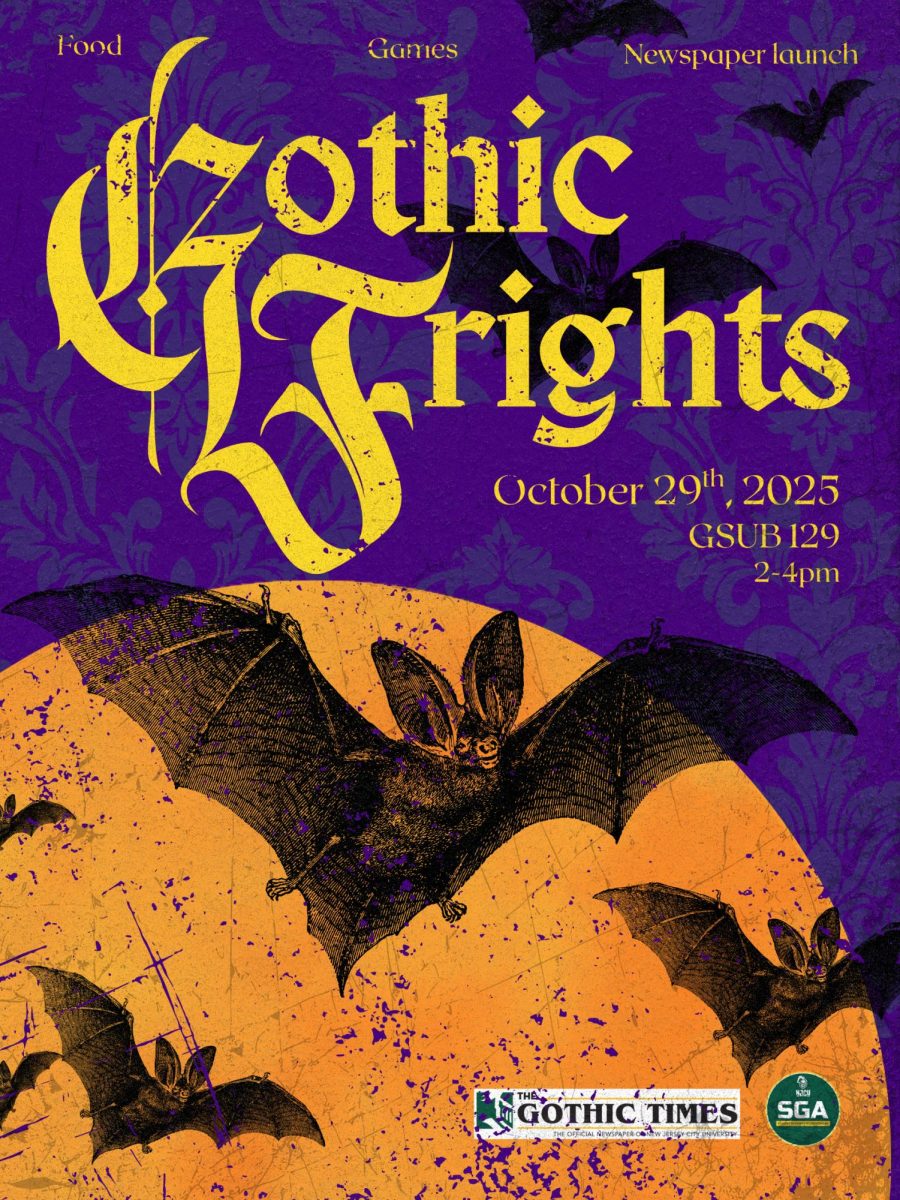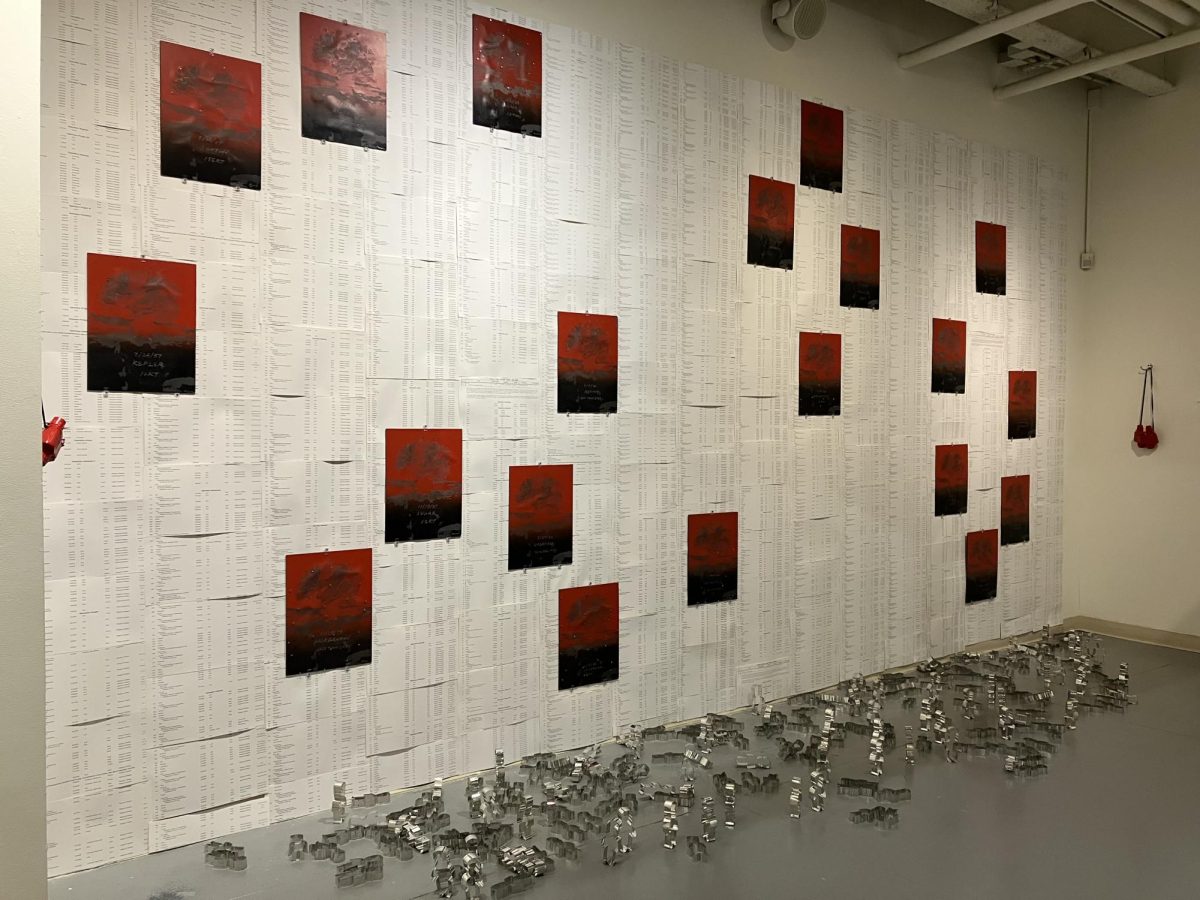A two-part series in which embedded tutors in NJCU’s Learning without Limits program reflect on their work with first-year composition students and their partnerships with faculty.
Part Two
Learning without Limits (LwL) supports NJCU students “from composition to career” thanks to a five-year United States Education Department Title V Grant. As the Academic Coordinator for LwL, I have the privilege of working closely with a fantastic group of dedicated tutors who inspire me every day with their hard work and commitment to student success. LwL tutors partner with faculty to support students in first-year composition classes, in the Writing Center, and beyond. At the end of last semester, the tutors wrote reflective essays in which they revisited the pedagogical work they had done during the semester, with its challenges and rewards, frustrations and victories. It is a pleasure to share selections from those essays here.
To learn more about LwL, follow us on Instagram where you can see our tutors, faculty, and students in action. To become an embedded tutor, email [email protected] or DM us @LwL_at_NJCU!
—Joshua Fausty, Professor of English, Academic Coordinator, Learning without Limits
Truthfully, I struggled the most this semester. The challenges were unprecedented. Use of A.I., a lack of motivation, and a disinterest in learning seemed to rule most of the students in the classroom. Attendance was slipping. Assignments were not turned in. Was it something I was doing wrong? What more could I do? How could I help these students? Did I not connect with them enough as a peer? Was I looking too much like just another teacher—another antagonist—in the classroom? How could I tell who was using A.I., and who was actually doing the work? Could I even make a difference?
It had gotten to a point that my friends would notice:
“Every time I see Alyssa enter the Writing Center after class, she’s sighing.”
“You look so tired.”
“What happened now?”
On the other hand, I started feeling the biggest wins. Over the summer, I kept in touch with Kyla, my student when I was an embedded tutor during the Spring 2024 semester. She was—is—a brilliant writer, but more importantly, she is eager and passionate. I remember meeting with her during class, talking about punctuation in her essay, and feeling like she genuinely wanted to learn more. (I want to cry every time she credits me for teaching her about the em-dash!) At the end of the semester, Dr. Giunta and I had both recommended she become a tutor, and she accepted. I saw her start tutoring in the Writing Center. I saw her interact with her students. Near the end of the semester, I received a text from Kyla, asking if I wanted to read her reflective essay. Her words, and seeing her grow from one semester to the next, reminded me of what embedded tutoring could do—what I could do, and had done, as an embedded tutor.
There is something communal about the work, beyond the writing and the pedagogy. During the first NJCU Writer’s Work event (where alums return to campus to share their work and tell the story of their writer’s journey after NJCU), I felt so proud to be able to introduce Rashad Wright, both physically and metaphorically, to my friends and writing community. I remember speaking to a student from a different class about how they are now going to be an English major. At the end-of-semester retreat, I saw different generations of students and writers come together to just talk about our job. My faculty partner has become one of my closest mentors and allies. I still see my students from last year around campus. In my journal, I have a note written about one that says, “for once, he didn’t ask where we are in the reading?!” I make sure to say “hi” to him every time.
Although I’ve felt defeated, concerned, and confused a lot this semester, I’ve learned to let it go. I take the wins; I’ve found out there are many. I do what I can to help my students. When it works, it works, and I get to see them figure out how to walk on their own. There are times when I want to take their hand, to pull them along, and tell them what I think they need. Most of the time, I’m wrong.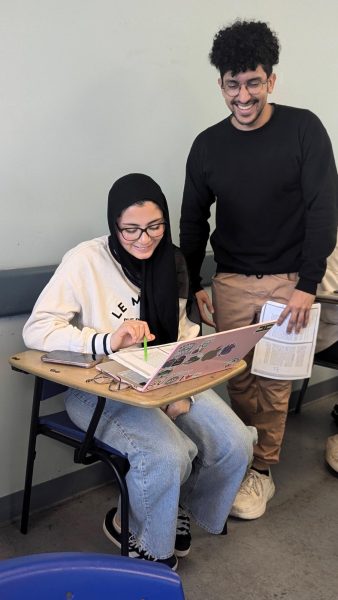
—Alyssa Lian Bacay, LwL tutor, Writing Center Lead Tutor, NJCU ‘24
When I first walked into the room, it was quiet. There were about six students. They were more nervous than I was, so I made it my mission to be as approachable as possible. In the beginning, many of the students did not know how to communicate with the professor. They were either too nervous or simply confused. I had to communicate with the students as best I could—sometimes they communicated back, sometimes they did not. As the semester went on, we started becoming a class that was able to talk about anything and
everything. If they were confused on an assignment, they would ask me any questions they had.
This semester taught me that there is so much joy and hope in college. One day in December, I had to take the shuttle bus to campus. I remember looking at my environment and the people surrounding me. It was a chilly gray day, and everyone looked depressed— like they did not even want to go to campus. However, when I got to ENGL100, there was chatter and laughter. It reminded me that there is nothing more rewarding than building that sense of trust with our students, being that bridge as a tutor for the professor and the students. I was proud of the community that we all built.
—Chandanie Dhanraj, LwL tutor
I was lucky to be partnered with a professor that was so funny. He has a great sense of humor and he’s incredibly knowledgeable. Our conversations about literature and history were the highlight of my semester.
I could tell a lot of the students felt comfortable talking with me and asking me for help. Some of them found me to be more approachable. One student came to see me in the Writing Center nearly every week. English was his second language, so he needed the extra help. It was a pleasure to work with an ESL student as I could also speak Spanish. I’d look over his writing — find repeated errors and notice patterns. He’d always get the tenses wrong. Seeing his drive to learn was really inspiring to me. He’s a proactive student.
Being in the Writing Center gives me a sense of community and the LwL program gives me a sense of responsibility and belonging. This program has boosted my self-esteem and confidence. It’s made me feel more of an adult, and I’m grateful for it. I love that I can immerse myself in things that feel meaningful to me and be there to help others.
—Bryan Martinez, LwL tutor
I’ve grown to love working as an embedded tutor and have no doubts about my worth in the classroom. Having someone in the classroom other than the professor makes students feel more comfortable asking for clarification. I’ve become a translator between my professor and students. I can understand what he wants and have learned to convey it to them so they can better understand. I believe that having specialized experiences with students is vital to your success and theirs.
As a tutor, I’ve grown a lot in a short time. I’ve built a bigger toolbox of writing and tutoring skills, but I’ve learned so much more. Working as a tutor has built my confidence and leadership skills. When I started college, I didn’t plan on being involved on campus. I planned to get good grades, make no friends, keep my head down, and graduate. Freshman Vee wouldn’t recognize who I am now, but I hope that they’d be proud. I now hold leadership positions on campus and am so involved I can’t walk across campus without running into five people I know and work with. I feel like I have a place, a family, a village that can support me. I’m proud to be a tutor and I can’t wait to continue down this path.
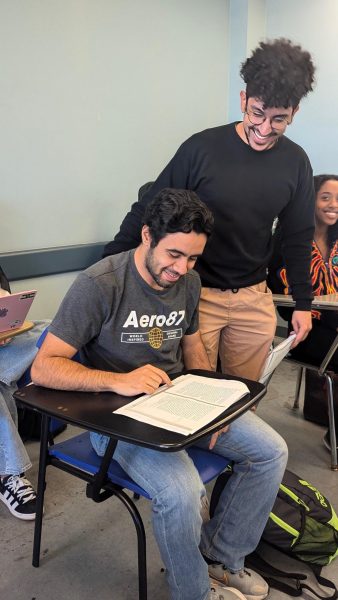
—Vee Hughes, LwL tutor
In the best way possible, the experience was like no other. It was different being on the other side of the room, not sitting with the students. I’m someone who tries to be an active participant in my classes. It was an interesting experience to have to show restraint and not raise my hand to answer a question but let the students work through it themselves. I enjoyed the experience of guiding students towards the answer. I got to the point where I admired my students, and it was nice to track their progress. Many of them had challenges at home, challenges with health, pressures with school and work, and still they would come to class. I was able to learn so much from them. I was so grateful that they gave me the opportunity to get to know them and that they were so generous to share a portion of their college experience with me. Being on the other side also made me a better student. I picked up on thinking strategies that I recognize are great to help you work through a problem even if you don’t necessarily know the answer.
—Heymi Auld Perez, LwL tutor
“Select the icon or press ALT+i to draft with a copilot.” It presents itself before I even begin—a short-cut, a fast-track, a means to give ‘em what they want with the click of a couple of buttons. I’m a bit tired. Overworked. And frankly, I’d love to be done with this assignment. In about five minutes, I could be hitting the send button. But what would become of my reflection then?
Here’s what this “intelligence” can never know: what it’s like to find a way out of your silence. What it is to generate ideas. What it means to feel the spark of your aliveness. To stare at a blank page and prove to yourself that you can fill it with beauty and creativity and candor.
Last semester, I witnessed the miracle of true intelligence—students working in groups, relating to texts, sharing lived experiences in their true voices.
Last semester also broke my heart—assignments written in robot speak, saying “all the right things” with none of the soul.
It is my hope that we fill our pages with our most sincere questions. Fill them with our longing. Fumble through them and find our way to coherence.
May we fill our pages with everything we’ve become, are becoming, and resist the urge to press ALT+i.
—Cat Marcial, LwL tutor, NJCU ‘24



